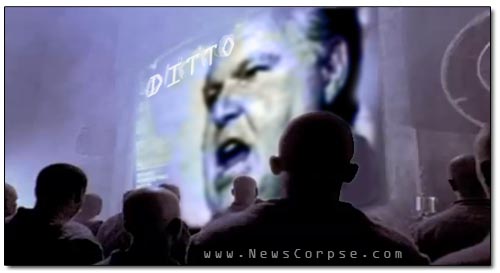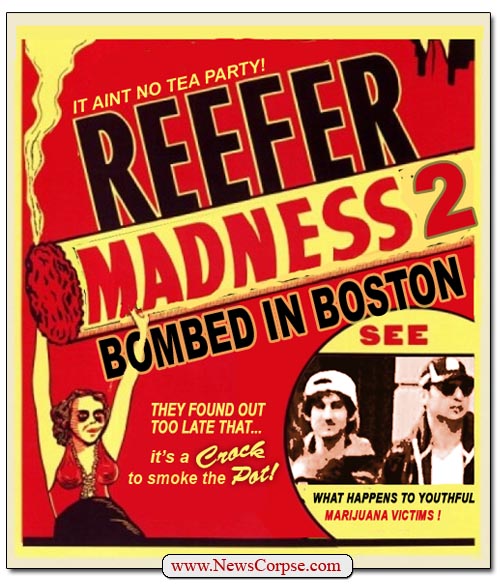For some time now there has been a delusional right-wing fear that President Obama and his socialist henchmen were plotting to confiscate every firearm in the nation and force the patriopathic gun-lovers of America into servitude. These NRA-theists are the weapons version of Birthers and Truthers, and since they believe that the government intends to seize their armories, I am calling them “Seizers.”
Setting aside the fact that there has been no effort to prevent any law-abiding citizen from exercising their right to keep and bear arms, the psychotic fervor that is present in these fanatics has been so emphatic that it has overflowed the banks of wingnuttery and flooded the media and even congress. One of the latest and looniest theories is that the U.S. Department of Homeland Security has been buying up bullets as part of a scheme to deplete the market so as to deprive citizens from having access to ammunition. That’s actually a softening of their prior theory wherein they thought that the DHS was preparing for warfare against a rebellious population.
The DHS has explained repeatedly that they are not buying any more bullets than prior administrations and, in fact, their purchases have declined (from 148.3 million in fiscal 2010 to 103.2 million rounds in 2012). But that hasn’t stopped the Seizers from frantically squealing about the imaginary conspiracy. What really makes this notion epically inane is that in a free market the only thing panic buying would do is motivate the manufacturers to increase production to meet demand. And now Fox News has gotten around to reporting this simple economic reality. But not without editorializing it in a false and negative way:

The article interviews an employee of – get this – Stockpile Defense by the name of – not kidding here – Steve Warholic (I wish I could make up stuff this good). This article goes to great lengths to advance the conspiracy theories of the Seizers before eventually getting around to reporting a bit of truth. They lead off with with some familiar Fox fear mongering:
“Massive government purchases, including a plan by the Department of Homeland Security to buy more than 1 billion rounds of ammunition, have further stoked fears – and suspicions.”
However, later in the article they get to what is truly at issue:
“Ammunition manufacturers are reporting record profits and sales, with increases that number in the double and sometimes triple digits. Olin, which owns Winchester, reported last week the company’s first quarter earnings climbed 190 percent over the same period last year.”
There you have it. This whole escapade by the administration was actually an effort to enrich the weapons industry. They were probably in cahoots with the NRA the whole time. Consider this: Since we know that the NRA is not a grassroots organization of citizens, but rather a lobbying group for arms manufacturers, then they have an interest in pumping up sales for guns and ammo. And the Obama administration has been struggling with weak job growth even as the economy has been heating up. So they would welcome anything that puts more people back to work. Therefore, news like like this would benefit both Obama and the NRA:
“Ammunition manufacturers are struggling to make enough and have hundreds of millions of dollars in backorders. They’ve added hundreds of employees and equipment and increased overtime, and, in some cases, are running factories around the clock.”
It’s a win-win. And accomplished courtesy of crackpots who are easily persuaded that their world is falling apart and they must stockpile munitions to protect them from their ravenous neighbors and the jackbooted thugs they used to revere as first-responders.
This sort of economic stimulus could be replicated with any number of other conspiracy theories. Reaching back to some golden oldies, why not reprise the Birther craze, but this time add a profit component that would convince people that they need to get their own documents in order. That would create a demand for paper to print new birth certificates and spur hiring at Kinkos and other quick copy emporiums. Or how about priming the climate change “hoax” in conjunction with oil companies to jump start the sales of gas guzzlers and petroleum products.
With the abundance of lunatic conspiracy theorists out there we could bring unemployment down to 4% in no time if we manage these nut cases efficiently.
[Update] Apparently unsatisfied with the response they got to this article, Fox republished the exact same piece five days later. They are really pushing to make something of this clunker.










